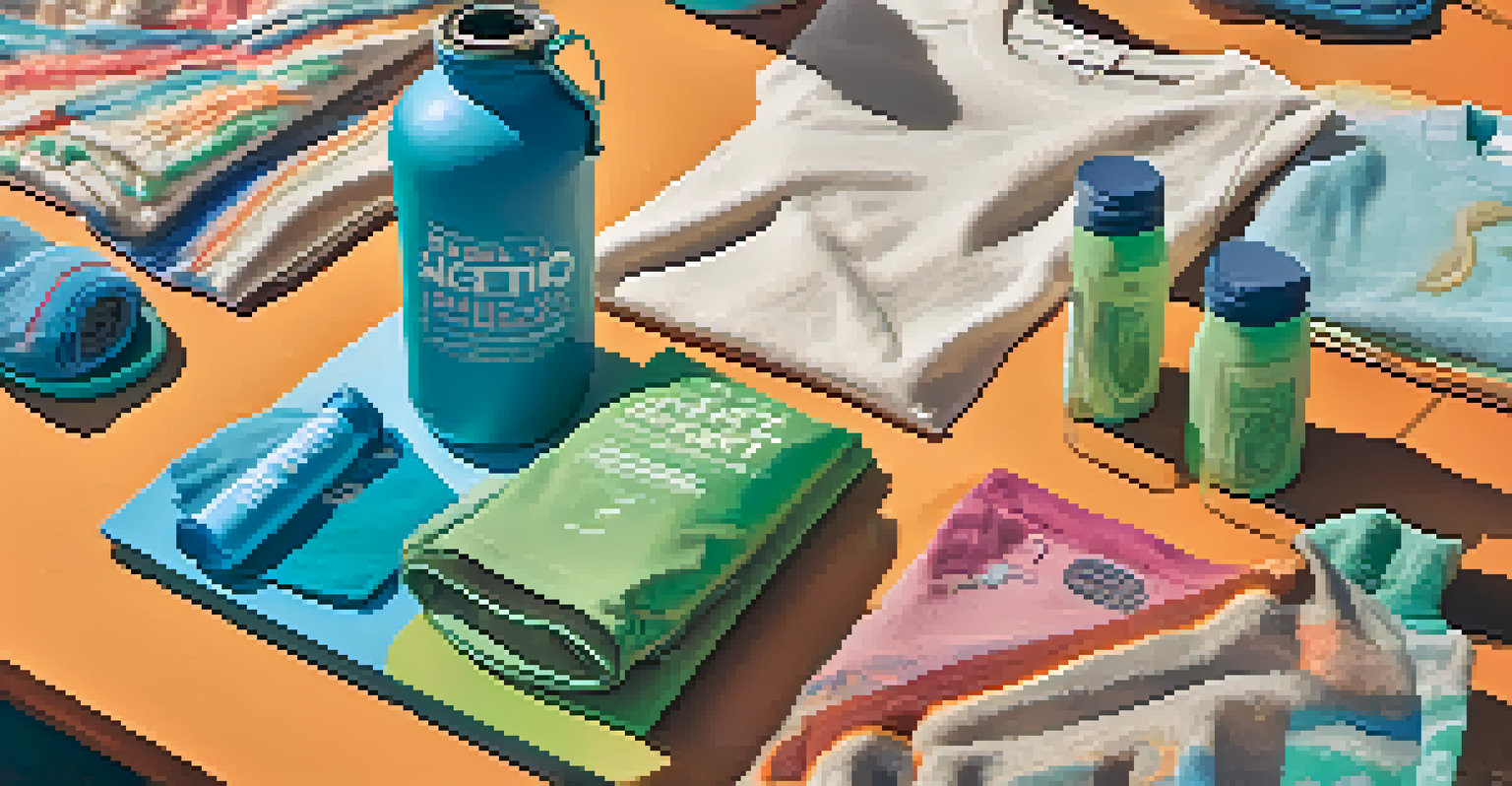The Future of Music: Integrating Sustainability into the Industry

Understanding Sustainability in the Music Industry
Sustainability in the music industry goes beyond just recycling; it involves a holistic approach to reducing environmental impact. This means considering everything from the production of albums to the logistics of touring. By embracing sustainable practices, artists and companies can contribute to a healthier planet while still delivering the music fans love.
The earth does not belong to us: we belong to the earth.
For instance, using eco-friendly materials for merchandise and album packaging is a simple yet effective change. Additionally, artists can opt for digital releases to minimize the carbon footprint associated with physical production. Such initiatives not only appeal to eco-conscious fans but also set a precedent for the industry at large.
Ultimately, sustainability is about creating a balance between enjoying music and preserving the environment. As the industry begins to adopt these practices, it's essential to recognize that every small change contributes to a larger movement towards a greener future.
The Role of Technology in Sustainable Music Production
Technology is rapidly transforming the music industry, and it holds the key to integrating sustainability into production processes. Innovations such as digital music production software reduce the need for physical resources, allowing artists to create from anywhere. This shift not only streamlines production but also decreases waste associated with traditional methods.

Furthermore, advancements in streaming technology have made music more accessible while minimizing the environmental impact of physical distribution. By opting for digital platforms, artists can reach a wider audience without the costs and carbon emissions linked to shipping physical copies.
Sustainability in Music Production
The music industry is adopting eco-friendly practices, from digital production to sustainable touring, to reduce its environmental impact.
As we look ahead, the challenge lies in ensuring that these technologies remain sustainable. The industry must prioritize renewable energy sources and eco-friendly practices in tech development to truly embrace a sustainable future.
Eco-Friendly Touring: A New Standard for Artists
Touring has long been a significant contributor to the music industry's carbon footprint. However, artists are increasingly recognizing the importance of eco-friendly touring practices. From using energy-efficient transportation to sourcing local materials for stage setups, it's possible to significantly reduce the environmental impact of tours.
It's not about what you look like on the outside, it's about what you look like on the inside. And if you look like a good person, it doesn't matter if you're not.
For example, some artists now incorporate solar-powered equipment and biodegradable materials for their shows. These efforts not only demonstrate a commitment to sustainability but also inspire fans to consider their own environmental footprints. Plus, many fans are drawn to artists who champion these values, creating a win-win scenario.
As more musicians adopt sustainable touring practices, it sets a new expectation within the industry. A shift towards greener tours could redefine how we experience live music while ensuring that the joy of performance doesn't come at the planet's expense.
Engaging Fans in Sustainable Practices
Engaging fans in sustainability efforts can create a community around eco-conscious music appreciation. Artists can leverage social media platforms to share their sustainable practices and encourage fans to participate. From hosting clean-up events to promoting eco-friendly merchandise, fans are more likely to get involved when they feel connected to their favorite artists' values.
Moreover, incorporating sustainability into concerts and festivals can enhance the overall experience. Offering incentives for carpooling or providing recycling stations can encourage fans to actively contribute to a greener event. When fans see their favorite musicians prioritizing sustainability, it fosters a sense of responsibility and shared purpose.
Engaging Fans for Eco-Consciousness
Artists can connect with fans around sustainability efforts, fostering a community that prioritizes environmental responsibility.
Ultimately, the music industry has a unique opportunity to use its influence for positive change. By engaging fans in sustainability initiatives, artists can cultivate a culture of environmental awareness that resonates far beyond the concert stage.
The Impact of Sustainable Practices on Artist Branding
Sustainability is becoming a key component of branding in the music industry. Fans increasingly expect artists to align with their values, including environmental responsibility. By openly embracing sustainable practices, musicians can enhance their brand image and differentiate themselves in a crowded market.
For instance, artists like Billie Eilish and Coldplay have gained recognition not only for their music but also for their commitment to sustainability. Their efforts resonate with fans who appreciate artists who stand for something beyond entertainment. This connection creates a loyal fanbase that supports their music and their mission.
As the industry shifts towards sustainability, artists who prioritize eco-friendly practices will likely see long-term benefits. Building a brand centered on sustainability can lead to increased visibility and engagement, ultimately driving both artistic and commercial success.
Challenges and Opportunities in Sustainable Music
While the push for sustainability in music is promising, it does come with challenges. Implementing sustainable practices often requires upfront investment, which can be a barrier for emerging artists and smaller labels. However, the long-term benefits, both for the environment and the bottom line, often outweigh these initial costs.
Moreover, there’s a growing market for eco-friendly products and services within the music industry. As more consumers become aware of their environmental impact, there’s an increasing demand for sustainable merchandise, venues, and events. This shift opens up opportunities for innovation and creativity, allowing artists and businesses to thrive while making a difference.
Branding Through Sustainability
Embracing sustainable practices enhances an artist's brand image, attracting loyal fans who value environmental commitment.
Ultimately, addressing these challenges head-on will require collaboration across the industry. By working together, artists, labels, and fans can create a more sustainable music ecosystem that benefits everyone involved.
The Road Ahead: A Greener Music Industry
Looking towards the future, the music industry is poised for a significant transformation towards sustainability. As more artists, fans, and companies embrace eco-friendly practices, we can expect to see a shift in how music is created, shared, and experienced. This evolution will not only impact the environment but also redefine the cultural landscape of music.
Moreover, educational initiatives that focus on sustainability can empower the next generation of artists and industry professionals. By integrating sustainability into music education, future musicians can be equipped with the knowledge and tools to create a positive impact through their art.

In conclusion, the future of music lies in its ability to harmonize creativity with responsibility. As we tune into this new era, embracing sustainability will not only enhance the music experience but also ensure that we protect the planet for generations to come.